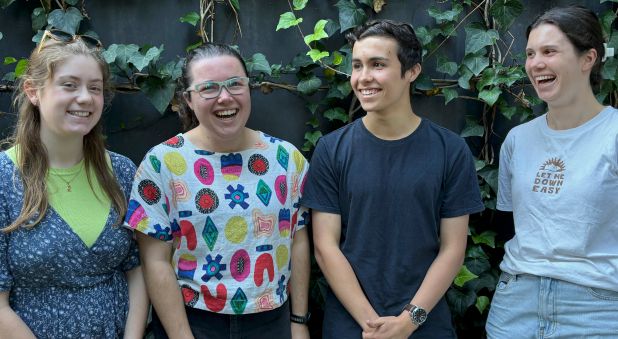When Jessie McMaster stepped into the classroom as a teacher, it didn’t signal the end of her life as a student. In fact, wanting to grow as a teacher inspired her to temporarily pause full-time primary teaching and take up theological studies.
“I love teaching in a Christian school environment,” says Miss McMaster, who teaches at Wollondilly Anglican College. “I thought I could be better equipped in teaching Christian [content] to kids.”
She was longing for an opportunity to advance her practice through deepening her faith. “It was a good opportunity to explore knowing God better and be better equipped with [teaching] strategies and tips.”
She enrolled at the Youthworks Centre for Christian Education, which helps teachers to strengthen their theological and gospel expertise either before or after gaining a teaching qualification. The goal of the centre is to see more well-equipped Christian teachers in schools with a rich understanding of how the gospel shapes and supports their vital work.
The Rev Mike Dicker, principal of Youthworks College, says, “Our Christian schools have been looking for and needing more Christian teachers for a long time. If you don’t have a groundswell of Christian teachers on your staff in a Christian school, it’s quite difficult to maintain the Christian culture.”
He hopes the program will be a theological complement to the training that teachers receive at secular higher education institutions, where their ethical stances and views will be challenged. “This will make them really sharp as teachers; they then go back into schools equipped and ready to engage with those same ideas.”
The difference in the classroom
Students at the Centre for Christian Education are expected to work in a school setting while they study. For those who already have a teaching degree this could involve teaching, while those yet to complete a qualification can seek employment as a teacher’s aide or member of the support staff. Miss McMaster is working part-time as a relief from face-to-face teacher, running Christian Studies classes with upper primary school students. Her learning is already having an impact on her lessons.
“[The course] has opened my perspective to the importance of teaching straight from the Bible,” she says. “It’s highlighted how having a better picture of the whole Bible shapes how I point kids to different aspects, like creation to new creation. I’m putting things into practice and regularly reflecting on what I’m doing.
“In our Formative Christian Teaching unit, we spent a lot of time reflecting on what it means to teach Christianly. I can be a Christian teacher in any school setting. My character and my knowledge of Jesus and serving him shape how I teach and how I value the kids. Knowing they’re a child of God [helps me to] approach things from a compassionate and loving perspective.”
She says it has been “really special” to invest time in her faith and see it as a priority, rather than having the sole focus on her profession as a teacher.
“I’ve no idea what the future looks like, but I’ll be more equipped. This year has been a valuable year, regardless of whether I step [back] into full-time teaching or a different education role.”






















